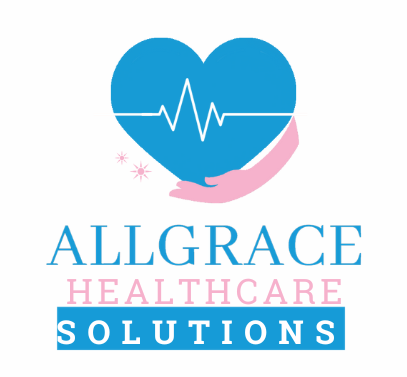Aging is a natural process that everyone goes through. As we age, our bodies undergo various changes, both internally and externally. While aging is a normal part of life, it also comes with its own set of health risks. These risks can range from chronic diseases to physical limitations and cognitive decline.
Key Takeaways
- Aging is a natural process that comes with health risks.
- Common health issues faced by aging adults include cardiovascular disease, arthritis, dementia, vision and hearing loss, and mental health problems.
- Cardiovascular disease is a major health risk for aging adults and can be prevented through lifestyle changes.
- Arthritis and other joint-related issues can be managed through exercise and medication.
- Dementia and cognitive decline can be prevented through a healthy lifestyle and mental stimulation.
Common Health Issues Faced by Aging Adults
One of the most common health issues faced by aging adults is the development of chronic diseases. Conditions such as heart disease, diabetes, and cancer become more prevalent as we age. These diseases can have a significant impact on an individual’s quality of life and can even be life-threatening.
In addition to chronic diseases, aging adults may also experience physical limitations. As we age, our bodies naturally become less flexible and our muscles may weaken. This can lead to difficulties with mobility and performing everyday tasks.
Cognitive decline is another common health issue faced by aging adults. Conditions such as dementia and Alzheimer’s disease can cause memory loss, confusion, and difficulties with thinking and reasoning.
Cardiovascular Disease and Its Impact on Aging
Cardiovascular disease is one of the leading causes of death among aging adults. Risk factors for cardiovascular disease include high blood pressure, high cholesterol levels, smoking, obesity, and a sedentary lifestyle.
As we age, our blood vessels become less flexible and our heart muscles may weaken. This can lead to an increased risk of heart attacks, strokes, and other cardiovascular events. It is important for aging adults to monitor their blood pressure and cholesterol levels regularly and make lifestyle changes to reduce their risk of developing cardiovascular disease.
Arthritis and Other Joint-Related Issues
Arthritis is a common health issue that affects many aging adults. There are several different types of arthritis, including osteoarthritis, rheumatoid arthritis, and gout. These conditions can cause pain, stiffness, and swelling in the joints, making it difficult for individuals to perform everyday tasks.
Treatment options for arthritis include medication, physical therapy, and lifestyle changes. It is important for aging adults with arthritis to work closely with their healthcare providers to develop a treatment plan that best suits their needs.
Dementia and Cognitive Decline
Dementia is a term used to describe a group of conditions that cause a decline in cognitive function. Alzheimer’s disease is the most common form of dementia, but there are other types as well, such as vascular dementia and Lewy body dementia.
Risk factors for dementia include age, family history, and certain medical conditions such as diabetes and high blood pressure. While there is no cure for dementia, there are strategies that can help slow down its progression and improve quality of life. These strategies include staying mentally and socially active, eating a healthy diet, getting regular exercise, and managing chronic conditions.
Vision and Hearing Loss in Aging Adults

Vision and hearing loss are common health issues that affect many aging adults. As we age, our eyesight may deteriorate, making it difficult to see clearly or read small print. Hearing loss can also occur as a result of age-related changes in the inner ear.
Common vision problems in aging adults include presbyopia (difficulty focusing on close objects), cataracts (clouding of the lens), and age-related macular degeneration (loss of central vision). Treatment options for these conditions may include glasses or contact lenses, surgery, or medication.
Hearing loss can make it difficult for aging adults to communicate and can lead to feelings of isolation and depression. Treatment options for hearing loss include hearing aids, assistive listening devices, and cochlear implants.
Managing Chronic Conditions in Later Life
Many aging adults have one or more chronic conditions that require ongoing management. It is important for individuals with chronic conditions to have regular check-ups with their healthcare providers to monitor their condition and make any necessary adjustments to their treatment plan.
Medication management is also crucial for aging adults with chronic conditions. It is important to take medications as prescribed and to communicate any concerns or side effects to healthcare providers. In some cases, medication may need to be adjusted or changed to better manage the condition.
The Importance of Exercise and Nutrition in Aging
Exercise and nutrition play a crucial role in maintaining health and well-being as we age. Regular physical activity can help improve cardiovascular health, maintain muscle strength and flexibility, and reduce the risk of chronic diseases such as heart disease and diabetes.
A healthy diet is also important for aging adults. Eating a balanced diet that includes fruits, vegetables, whole grains, lean proteins, and healthy fats can help provide the body with the nutrients it needs to function properly.
Tips for staying active and eating well include finding activities that you enjoy and that are appropriate for your fitness level, setting realistic goals, and seeking support from friends, family, or a healthcare professional.
Mental Health and Emotional Well-being in Aging
Mental health issues are common among aging adults. Conditions such as depression and anxiety can have a significant impact on an individual’s quality of life. It is important for aging adults to seek help if they are experiencing symptoms of mental health issues.
Strategies for maintaining emotional well-being include staying socially active, engaging in activities that bring joy and fulfillment, seeking support from friends and family, and practicing self-care.
Strategies for Preventing and Managing Health Risks in Aging
Preventive care is crucial for aging adults. Regular check-ups with healthcare providers can help identify any potential health issues early on and allow for prompt treatment. It is also important to stay up-to-date on vaccinations, such as the flu vaccine and the shingles vaccine.
Managing chronic conditions requires ongoing effort. This may include taking medications as prescribed, monitoring symptoms, making lifestyle changes, and seeking support from healthcare providers and support groups.
There are also many resources available for aging adults and their caregivers. These resources can provide information, support, and assistance with managing health issues and navigating the healthcare system.
Aging comes with its own set of health risks, but there are strategies for preventing and managing these issues. By staying informed and taking proactive steps, aging adults can maintain their health and well-being for years to come. It is important to prioritize preventive care, manage chronic conditions, and make healthy lifestyle choices. With the right support and resources, aging adults can age gracefully and enjoy a high quality of life.
If you’re interested in learning more about the health risks associated with aging, you may also find the article “An Overview of Substance Abuse in the United States: Causes, Treatment, and Impact” informative. This article delves into the prevalence of substance abuse among older adults, the underlying causes, available treatment options, and the impact it has on their overall health and well-being. To read more about this topic, click here.






0 Comments